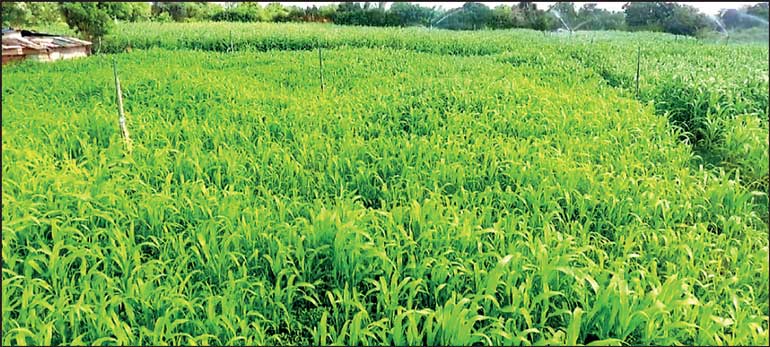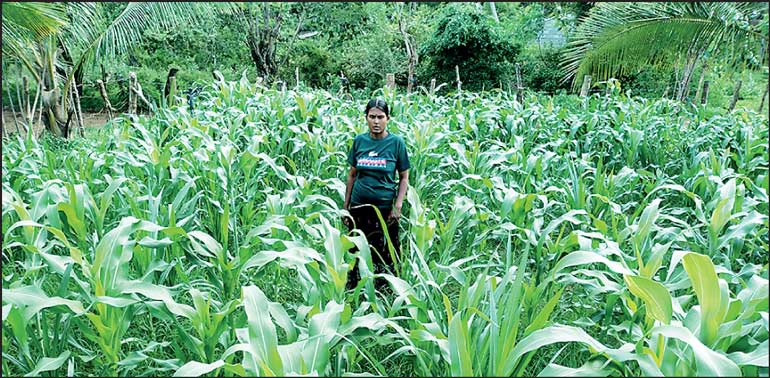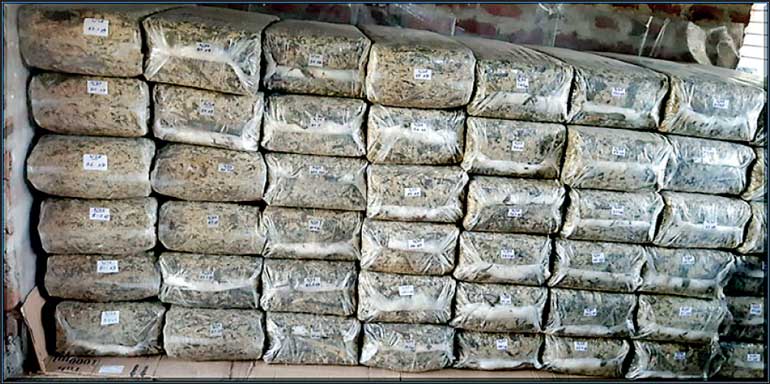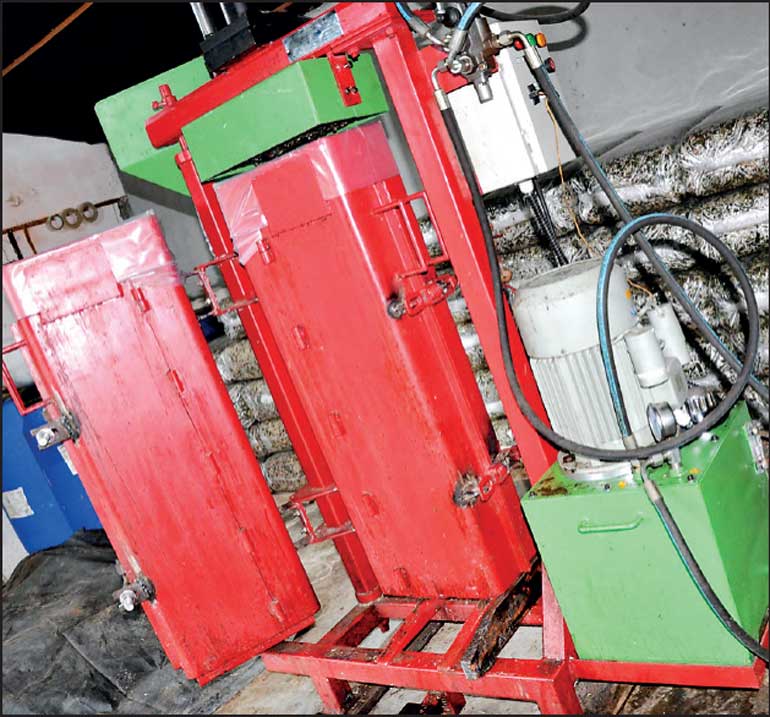Monday Feb 23, 2026
Monday Feb 23, 2026
Friday, 19 November 2021 00:00 - - {{hitsCtrl.values.hits}}

Sorghum paddocks for year-round feed with sprinkler irrigation system
Access to good quality and affordable fresh milk to local consumers is a top priority in Sri Lanka’s national agenda. Addressing gaps in animal nutrition is the most critical factor in increasing milk production. To increase milk yields and assure consistent year-round milk and income for dairy farmers, animal feed has been identified as an essential and basic input. The Market-Oriented Dairy (MOD) Project, in collaboration with the All Island Dairy Association (AIDA) hosted a webinar on “Enabling year-round nutritious feed systems to increase milk production” where different stakeholders shared emerging sustainable models adopted by dairy entrepreneurs that could be replicated to maximize impact in the dairy sector.
Accessibility to year-round feed for dairy cows guarantees consistent milk yields throughout the year, ensuring a sustainable annual income to dairy farmers. Working together with over forty industry partners, consistent feed has been a key priority of the United States Department of Agriculture (USDA) MOD Project during the past four years of project implementation. MOD’s notable achievements towards this objective include 60 percent of 4,773 trained medium-scale dairy farmers growing their own fodder, with 137 active commercial fodder cultivators and five silage entrepreneurs supplementing the feed supply gap, thanks to MOD technical support. Cumulatively over 10,400 harvested hectares including ratoon crops of better-quality grasses such as CO3, CO4, and super napier varieties have been grown across 17 districts using improved techniques and technologies. With the recent regulatory changes in relation to the use of fertilizer, most of these farmers and cultivators who have traditionally used organic compost to meet a part of their fertilizer requirements are now looking at full conversion whilst minimizing yield losses. Five commercial silage entrepreneurs producing nearly 300,000 kg per month in total at present supply conveniently sized, affordable silage packs to medium- and large-scale dairy farms.
During the webinar MOD showcased the dairy industry’s potential by replicating viable business models developed through collaborative partnerships. Presenters included the research team from Rajarata University who discussed their work on total mixed ration (TMR) briquette production, and commercial entrepreneurs who support the feed supply through the sale of fresh grass or silage. Officials of the Department of Animal Production and Health (DAPH) and the Mahaweli Development Authority at the provincial level and private sector organizations discussed the value of partnerships in growing the sector, sharing experiences in facilitating access to resources, raw material inputs, financing as well as access to market for silage.
The power-packed webinar in the presence of over 100 leaders of industry, academia and public sector, also had the unique honor of the presence and support of the Director General of DAPH, Dr. Hemali Kothalawala as well as the Director General of the Department of Agriculture, Dr. Ajantha De Silva. Both senior officials outlined the national objectives and reaffirmed their commitment and support to the sector’s growth. Dr. Kothalawala stated that “with the public sector and private sector working together, we have the opportunity to save up to LKR 60 billion outflow from the country as well as increasing the income of our dairy farmers.” Dr. De Silva assured his support in the Department of Agriculture sharing its expertise in useful topics such as maize, millets and sorghum cultivation as well as providing recommendations on the shift to organic fertilizer and required nutrient supply.
Focusing on solutions to the challenges, the Project Director of MOD, shared his thoughts on how collaborative partnerships have helped develop mid-scale dairy farmers to think of dairy farming as a business. He remarked that “this required a mindset change. The farmers [had] to realize the importance of year-round feed to get high returns throughout the year. This has in turn helped develop a supportive ecosystem with entrepreneurs in both fodder and silage production.” Currently approximately 23 percent of MOD’s farmers have achieved year-round feed availability with about 16 percent making their own silage and 11 percent purchasing feed to bridge the gap. He added, “our reason for optimism is that once these models are more universally adopted with proper management and feeding, Sri Lanka can optimize the potential of the existing herd, which can go a long way to fulfill the national need.” Mr. Asoka Bandara, a veteran of the industry and currently serving as a Vice President of AIDA, commended these efforts and echoed the sentiments stating “knowledge sharing opportunities such as this is timely and will encourage more entrepreneurship in the sector.”
The MOD Project encourages other stakeholders to replicate similar ventures in different regions to maximize the impact of the dairy sector in Sri Lanka. MOD continues to facilitate such partnerships, build capacities, provide technical knowledge and business planning skills, introduce new technologies, develop a network of outgrowers, and provide linkages to buyers and finance. Entrepreneurs interested in establishing commercial fodder and/or silage production are invited to contact the MOD team via email at [email protected] or by phone at 0112-580-656.

Mrs. Rajapaksa from Dambulla using vermicompost for fodder cultivation

Affordable conveniently sized silage packs made by silage entrepreneurs for dairy producers

Total Mixed Ration (TMR) feeding improves feed intake and reduces wastage leading to increased milk yields

Low interest financing solutions for dairy sector investments